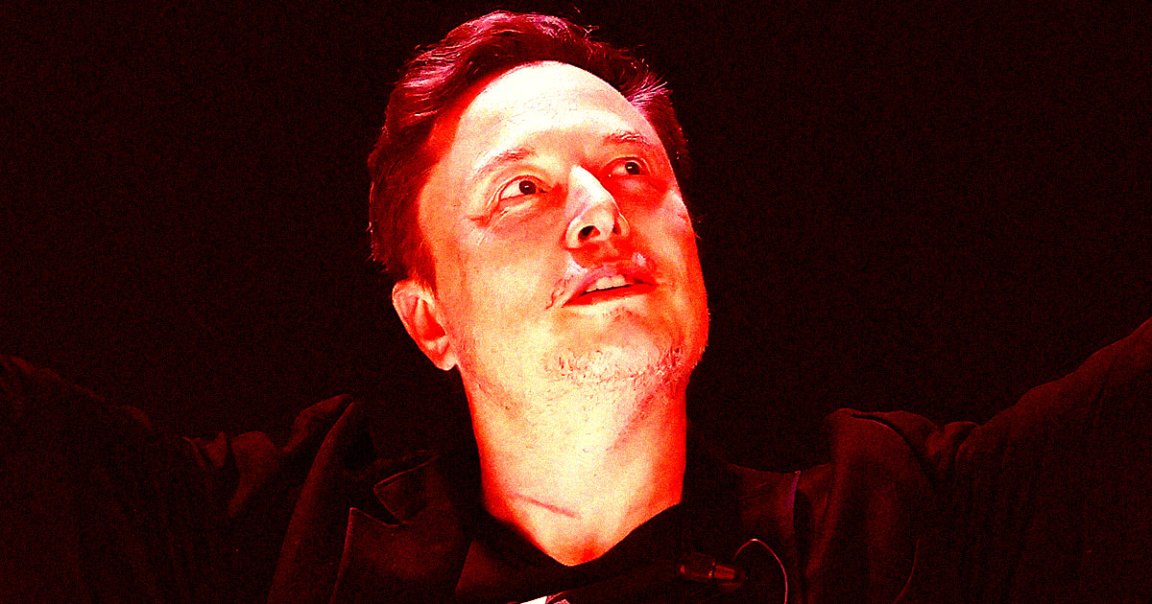
X-formerly-Twitter owner Elon Musk is very unhappy with advertisers, who are opting out of giving him money. In fact, Musk — the self-proclaimed “free speech absolutist” — is calling for them to be criminally prosecuted for, um, exercising the mild free speech of not paying him.
“Hopefully, some states will consider criminal prosecution,” he tweeted, responding to a video of conservative pundit Ben Shapiro accusing “legacy media” of lying to “preserve left-leaning narratives.”
Shapiro was testifying in front of a House of Representatives Committee on the Judiciary, which released a report this week, accusing the Global Alliance for Responsible Media (GARM) of conspiring to suppress conservative voices on the internet, an increasingly common talking point among Republicans.
Now that Musk has surrounded himself with pundits sympathetic to his increasingly right-wing beliefs, he was quick to chime in.
“Extremely concerning!” Musk tweeted in response to the report.
“Having seen the evidence unearthed today by Congress, X has no choice but to file suit against the perpetrators and collaborators in the advertising boycott racket,” he wrote.
Basically, Musk essentially wants it to be illegal for companies to refuse to advertise on his platform.
But who could blame them for leaving in droves following his chaotic $44 billion acquisition in 2022? The company has quickly turned into a cesspool of disinformation and hate speech — a nosedive accelerated by Musk’s own racist tirades.
And it’s not just advertisers. Data suggests users are also jumping ship in droves.
Meanwhile, Musk has attempted to stem the bleeding by begging advertisers to return. That’s despite quite literally telling them to “go fuck yourselves” during the New York Times DealBook Summit last year.
It’s a precarious situation for the company, which has already been reeling from plummeting revenue. Last month, Bloomberg reported that ad revenues were down almost 40 percent in the first half of 2023 compared to the same period in 2022.
And Musk’s kneejerk lawsuits aimed at nonprofits that fight hate speech online aren’t going well, either. The infamously litigious CEO had been accusing these groups of scaring away advertisers — somehow forgetting his own role in the exodus.
His suit against the Center for Countering Digital Hate was dismissed in March, for example, with a judge finding that Musk was trying to “punish” the group for exercising free speech. Another lawsuit he filed against Media Matters for America is scheduled for a trial in April next year — but the nonprofit maintains that the complaint is already dead in the water.
Whether Congress will agree with Musk’s provocative insinuation that advertisers who boycott X should be criminally prosecuted remains dubious at best.
For its part, GARM maintains that it didn’t do anything wrong, telling Ars Technica in a statement that it “has continually demonstrated that it will cooperate with the House Judiciary Committee in good faith” and that it remains “steadfast in the conviction that GARM enhances transparency in previously opaque practices relative to ad placements in digital social media.”
The situation is especially awkward for X CEO Linda Yaccarino, who has historically supported GARM, a flagship partner of the World Economic Forum, to which she has strong ties.
Now, Yaccarino is desperately trying to pick up the pieces and put out Musk’s fires.
On July 1, X announced that it had “reinstated our relationship” with GARM. “X is committed to the safety of our global town square and proud to be part of the GARM community!”
Whether Musk would agree with that sentiment remains to be seen.
More on X: Elon Musk Begs Advertisers to Return as Twitter’s Revenue Plunges